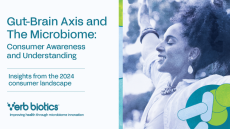Food for thought? Soy protein may not benefit brain functions
Contrary to previous scientific evidence, the new data – a clinical trial published in the journal Neurology – reports that long term consumption soy isoflavones has no effect on global cognitive functions, but may improve memory related to facial recognition.
"Our study provides strong evidence that soy supplements should not be used by postmenopausal women with the main goal of enhancing overall cognitive ability," said study author Dr Victor Henderson of Stanford University, USA.
"On the other hand, a diet high in soy protein does not appear to have any harmful effect on thinking skills either," he said – noting that the study found long-term use of soy protein “neither improved nor impaired overall cognition."
Soy science
Soy isoflavones are well known phytoestrogens - active substances derived from plants that have a weak estrogen-like action.
They have been studied for their role in cancer prevention and slowing down the ageing process in peri-menopausal women, and have proved to be a popular alternative to hormone replacement therapy for those wishing to control menopause symptoms without resorting to drugs.
Soy isoflavones have also been suggested to have beneficial effects for heart health, hot flushed, brain functioninh and memory.
Study details
In the new double-blind randomised controlled trial, Henderson and his team gave 313 healthy postmenopausal women 25 grams of soy protein daily – a dose comparable to that of traditional Asian diets – or a milk protein-matched placebo.
Participants were also given tests that measured memory and other thinking abilities at the start of the study and 2.5 years later.
The research team revealed that the data showed no significant change in test scores between the women who took the soy supplements and those who took the milk protein supplements.
There was, however, a small improvement in visual memory (or facial recognition) of around 13% in the soy protein group compared to the milk protein group, they said.
“For healthy postmenopausal women, long-term dietary soy isoflavone supplementation in a dose comparable to that of traditional Asian diets has no effect on global cognition but may improve visual memory,” concluded the researchers.
Source: Neurology
Volume 78, Number 23, Pages 1841-1848, doi:
“Long-term soy isoflavone supplementation and cognition in women. A randomized, controlled trial”
Authors: V.W. Henderson, J.A. St. John, H.N. Hodis, N. Kono, C.A. McCleary, A.A. Franke, W.J. Mack















